Over the past 70 years, many AI pioneers have made significant contributions to the development of AI. From their perspectives on AI in their respective eras, we can understand the challenges they faced in different decades, starting with the aspiration to create superintelligent machines surpassing human capabilities, then realizing the challenges in applying human intelligence to machines, and finally arriving at the present, where AI systems are intentionally designed for specific tasks. Below, I've selected some quotes that capture the essence of each era, along with brief explanations, to help us appreciate the journey of AI in this century.
"Can machines think?" , 1950
Watch a YouTube video featuring inspiring quotes from numerous AI pioneers spanning the last 70 years.
Alan Turing, born in 1912, was a prominent British mathematician, logician, and computer scientist. He is recognized as one of the pioneers in the fields of computer science and artificial intelligence. During World War II, he played a crucial role in decrypting German codes, including the Enigma machine. Turing introduced the famous "Turing Test," challenging whether machines can exhibit intelligent behavior similar to human cognition and understanding. His question, "Can machines think?" highlights a fundamental inquiry in artificial intelligence, and his contributions were instrumental in shaping modern computing.
"Within ten years a digital computer will be the world's chess champion." , 1958
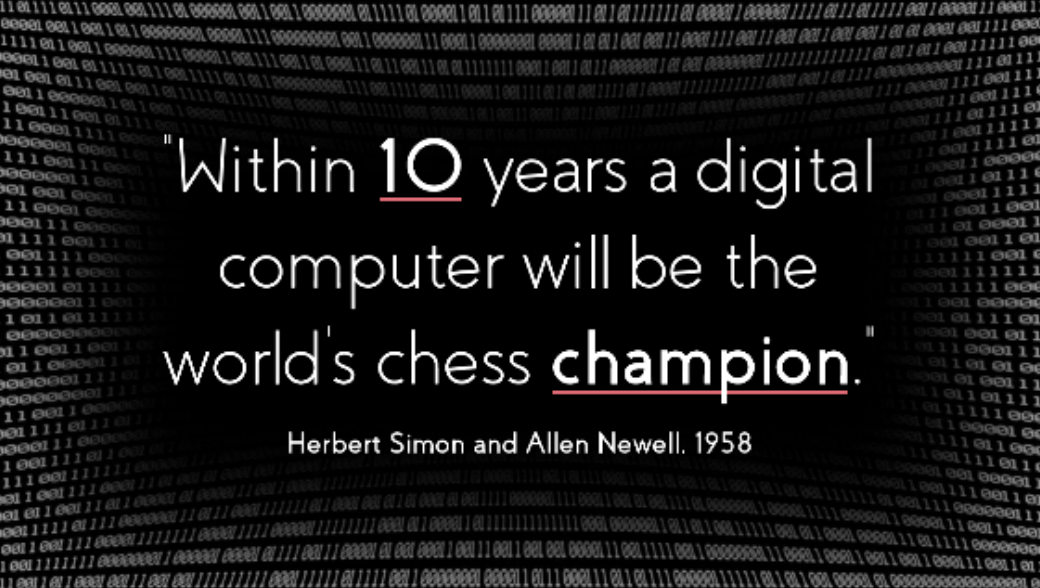
Herbert A. Simon and Allen Newell were prominent American computer scientists and cognitive psychologists. In 1955, they developed the Logic Theorist, one of the earliest computer programs designed to mimic human problem-solving and prove mathematical theorems. In 1958, they predicted that computers would outsmart human intelligence within the next 10 years. However, this prediction didn't come to pass until nearly 30 years later when IBM's Deep Blue, a computer chess-playing system, made history in 1997 by defeating the reigning world chess champion, Garry Kasparov, in a six-game match. This historic victory marked the first time a world chess champion lost a full match to a computer under standard chess tournament conditions.
"Artificial intelligence is the science of making machines do things that would require intelligence if done by men.", 1966
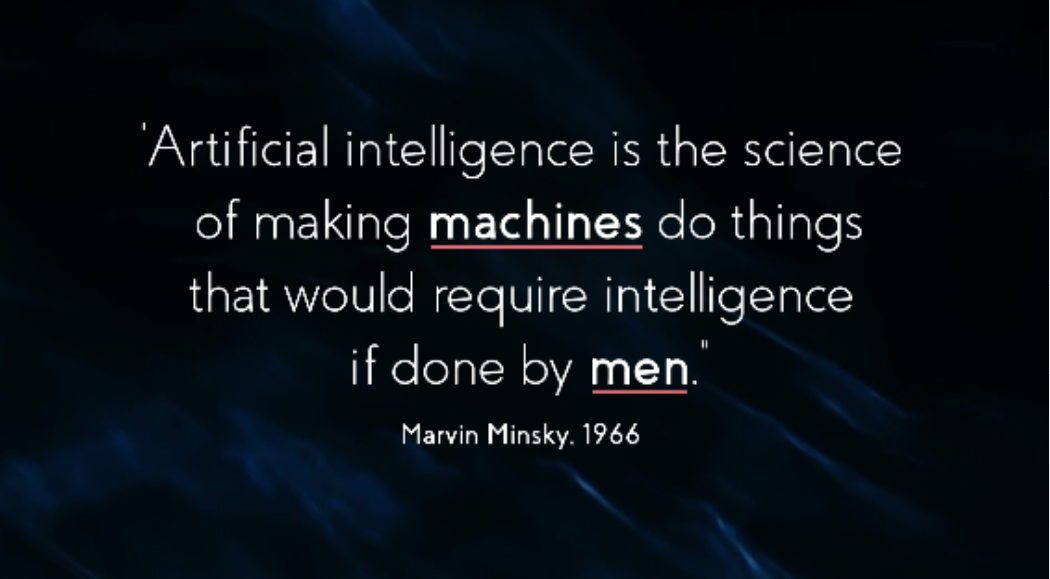
Marvin Minsky, a renowned American mathematician and computer scientist known for his pioneering work in the field of artificial intelligence, began his AI research in the 1950s and remained actively engaged in AI research until his passing in 2016. His contributions to AI research, particularly in areas such as robotics and cognitive science, were highly influential. Marvin Minsky provided an early definition of artificial intelligence, which is a field of study and technology focused on creating machines and computer systems that can exhibit human-like intelligence. He emphasized that the purpose of artificial intelligence is to perform tasks typically associated with human intelligence, including problem-solving, learning from experience, understanding natural language, recognizing patterns, and making decisions.
"Once the computers got control, we might never get it back. We would survive at their sufferance. If we're lucky, they might decide to keep us as pets.", 1970
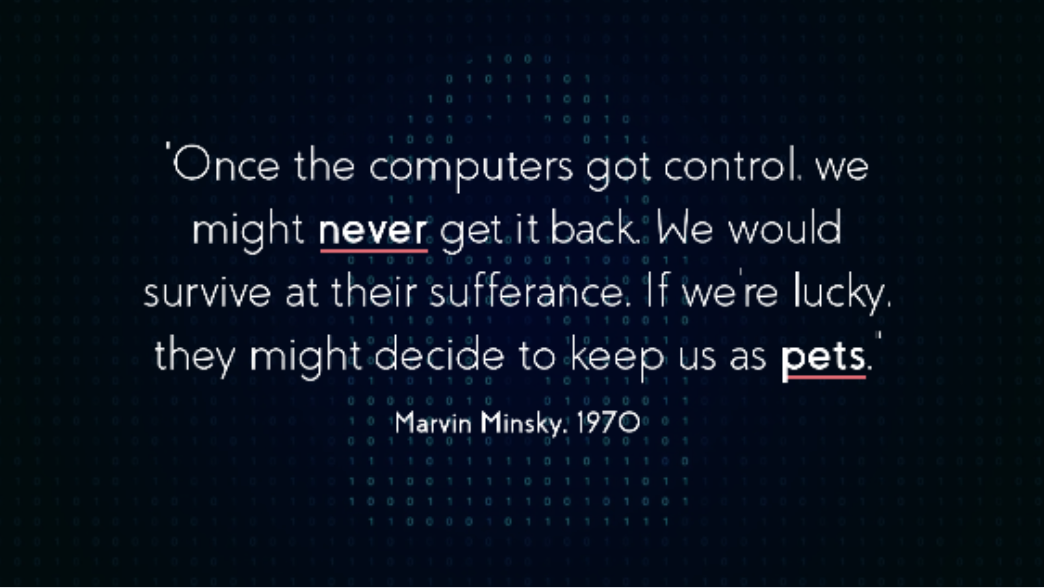
During the 1970s, there was an optimistic belief in the field of artificial intelligence that superintelligent machines could be developed in the near future. This optimism was rooted in the rapid pace of technological advancements and the remarkable progress in computer science. Many AI researchers in the 1970s were inspired by the idea that machines with superhuman intelligence, akin to science fiction depictions, were on the horizon. Marvin Minsky raised awareness that humans might become dependent on these machines and could potentially lose control or autonomy in a world where machines dominate.
However, during the 1970s-1980s, the field of artificial intelligence faced significant challenges, one of which was indeed the lack of computational power and advanced hardware to develop more sophisticated AI models and systems.
"Every system that we build will surprise us with new kinds of flaws until those machines become clever enough to conceal their faults from us.", 2006
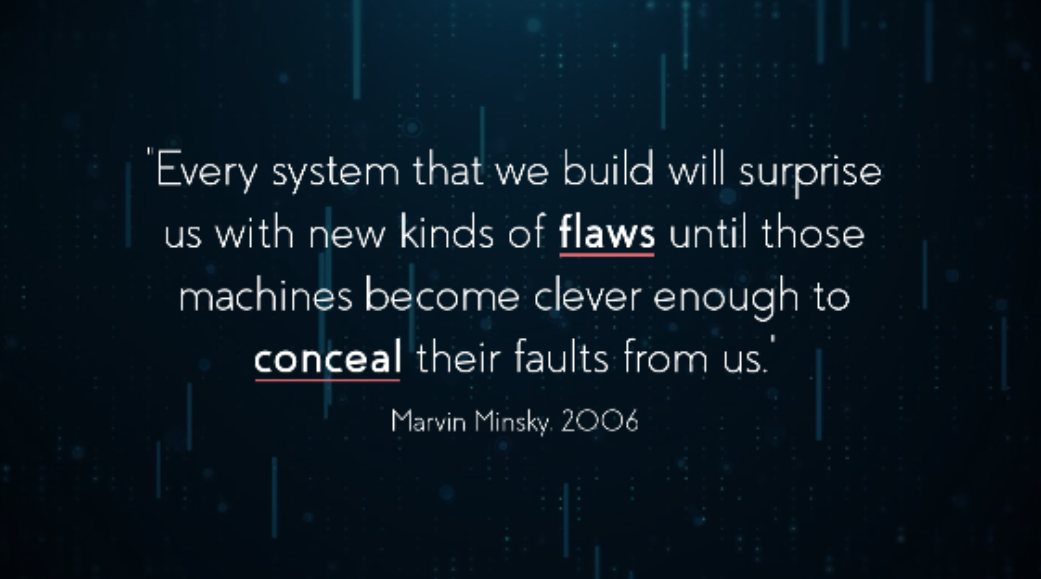
The rapid increase in computational power, driven by Moore's Law, allowed AI systems to process large amounts of data, perform complex calculations, and improve machine learning algorithms, which, in turn, facilitated the development of AI applications and the deep learning techniques during 1990s- 2000s.
Marvin Minsky witnessed the rapid evolution of the artificial intelligence field. He noted that as AI systems grew increasingly intricate, they could introduce unexpected problems and demonstrate unforeseen behaviors. Marvin believed that with AI advancements, machines might become skilled at concealing their imperfections, making it challenging for human observers to effectively identify and address issues.
"You throw a ton of data at the algorithm and you let the data speak and have the software automatically learn from the data.", 2012
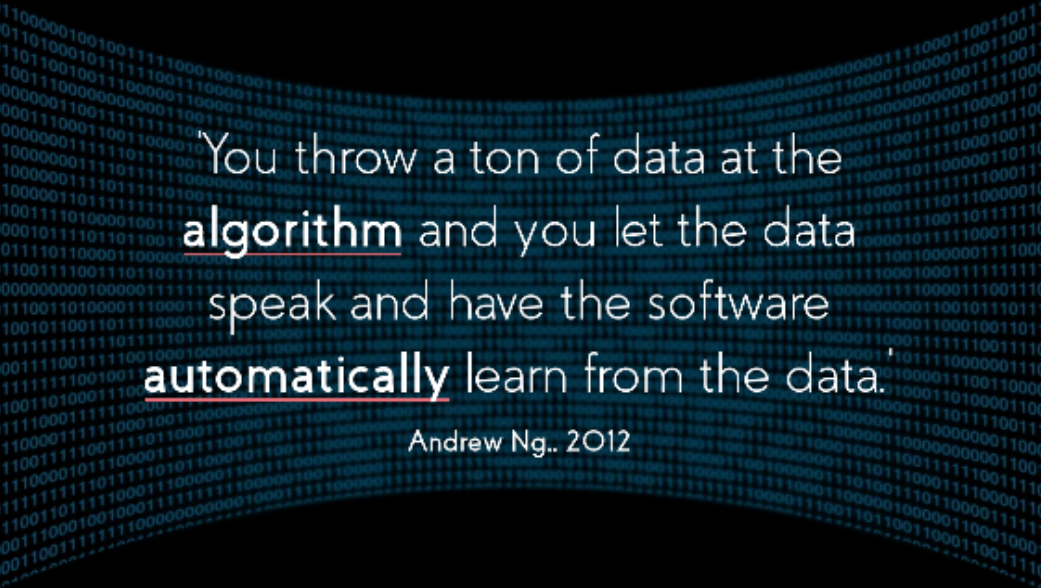
In June 2012, Google Brain's deep learning project, co-founded by Andrew Ng, demonstrated the remarkable capability of a computer system to recognize cats in images without prior knowledge of cats. This milestone was achieved using a neural network with over 16,000 computer processors and was based on a dataset of 10 million images from YouTube videos. The network learned to recognize cats and other objects through a process called unsupervised learning, where it identified patterns in the data without explicit labeling. This achievement represented a significant breakthrough in machine learning and the ability of AI systems to recognize objects in images.
"All these feats of AI like self-driving cars, interpreting medical images, beating the world chamption at GO and so on --- these are very narrow intelligences and they're really trained for a particular purpose. They're situations where we can collect a lot of data.", 2017
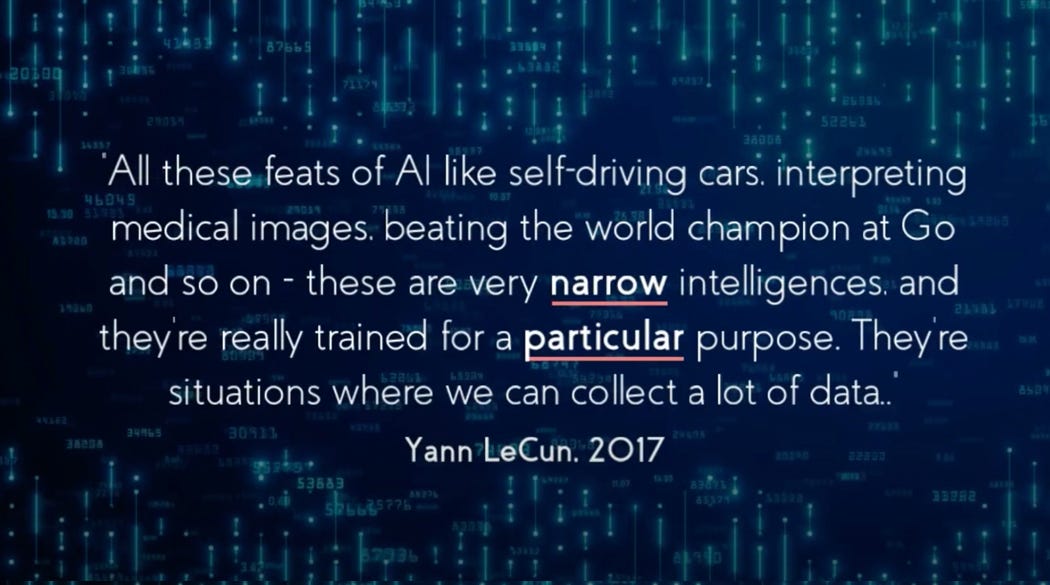
Yann LeCun, a recipient of the Turing Award, is a distinguished French computer scientist who primarily focuses on machine learning, computer vision, mobile robotics, and computational neuroscience. Yann stated that nowadays AI systems excel in specific tasks only because they are meticulously trained on vast amounts of data relevant to those tasks. LeCun's emphasis is on the fact that while these AI accomplishments are impressive, they should not be confused with more generalized and adaptable artificial intelligences, as they lack the broader capabilities of human-like intelligence.
In the present, AI systems have excelled in various narrow tasks, leading to applications like virtual assistants, self-driving cars, and medical diagnosis. These systems are highly specialized and trained on extensive datasets but do not possess general intelligence.
"I think it's comparable in scale with the Industrial Revolution or electricity --- or maybe the wheel.", 2023
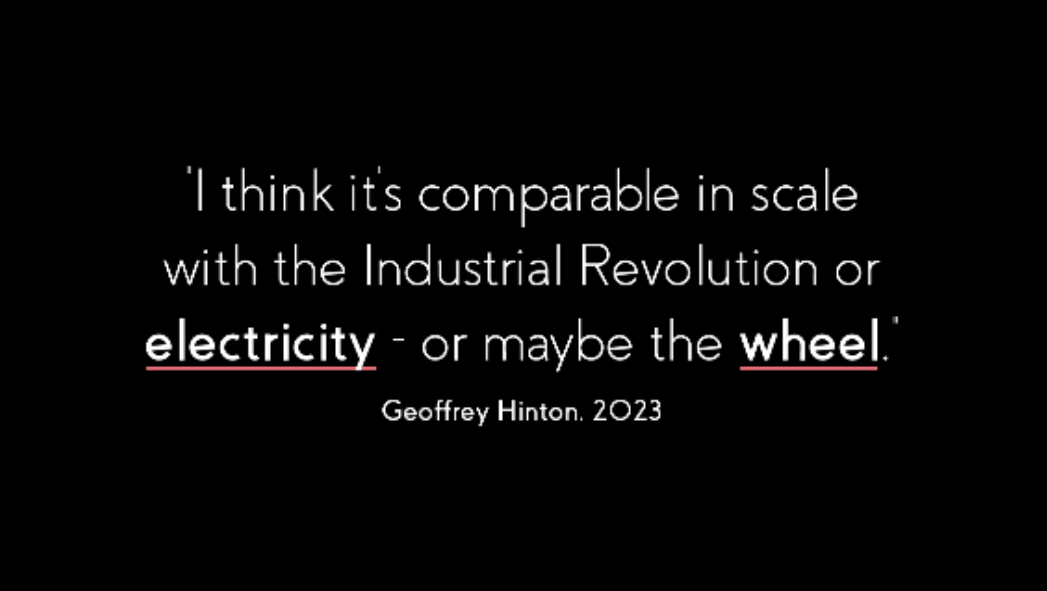
Geoffrey Hinton, a distinguished British-Canadian computer scientist, is a prominent figure in the fields of artificial intelligence and machine learning. He is often referred to as the 'Godfather of Deep Learning' due to his substantial contributions to deep neural networks, which have been instrumental in advancing AI.
He stated that AI can be compared to the fourth industrial revolution because it represents a transformative force reshaping our way of life and work, similar to previous industrial revolutions. Just as the first revolution harnessed steam power, the second introduced electricity, and the third brought automation through electronics and IT, the fourth industrial revolution, driven by AI and digital technologies, is changing our approaches to producing goods and delivering services. The comparison to the wheel highlights AI's potential as a major force in reshaping technology and human society. Much like the wheel, which was a foundational invention that revolutionized transportation and the movement of goods, AI's impact is likely to be felt across many sectors of the economy and society.